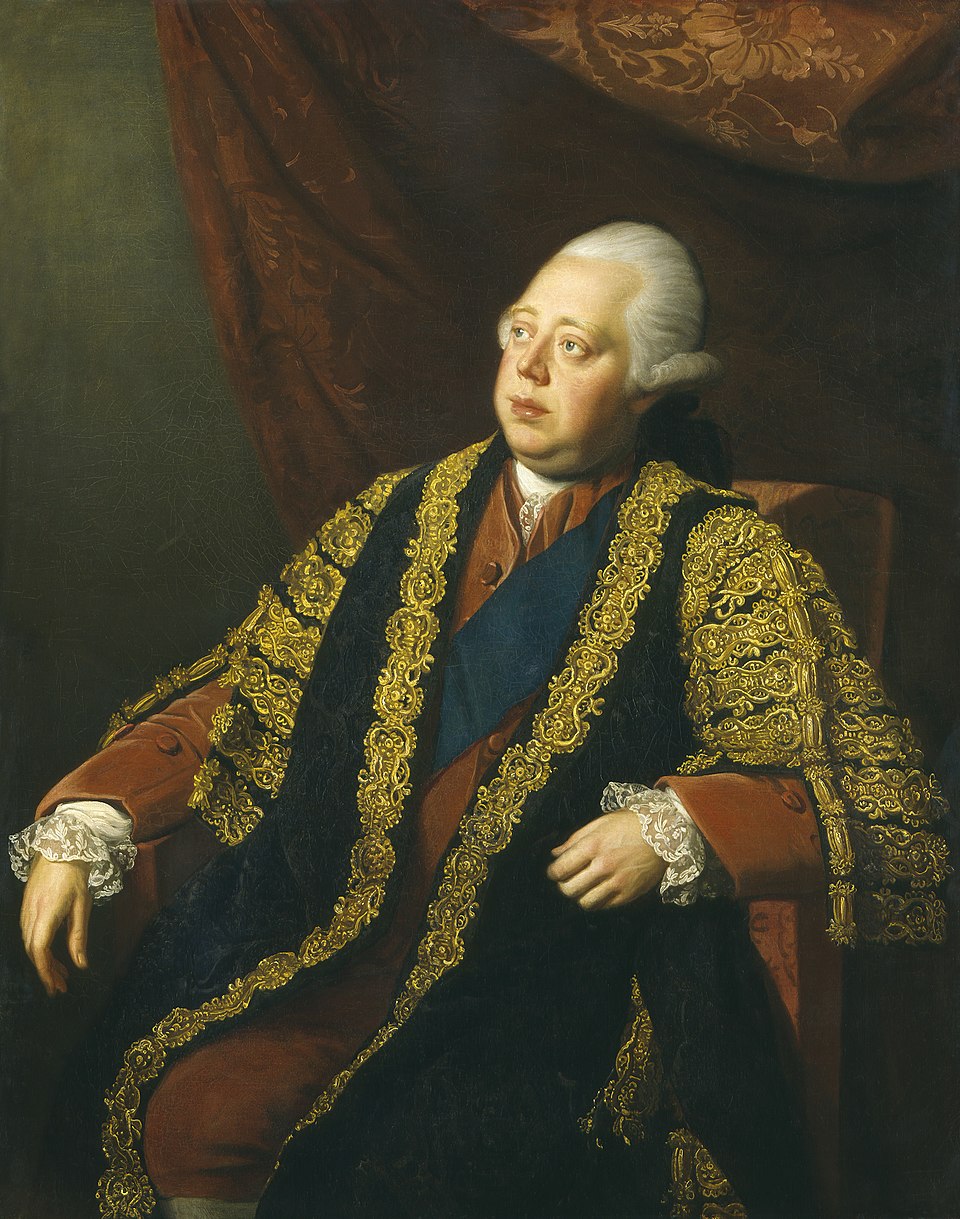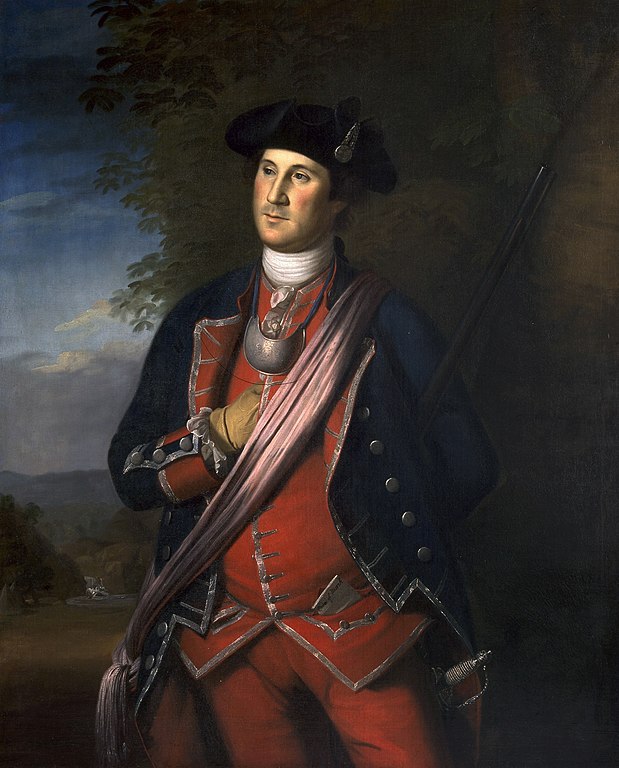The year 2026 marks the 250th anniversary of the Declaration of Independence. Cardinal News has embarked on a three-year project to tell the little-known stories of Virginia’s role in the march to independence. As part of this, I’m writing monthly columns about the politics of the era, written the same way I’d write them today. The events described here took place in June 1775. You can sign up for our monthly newsletter here:
Virginia’s royal governor has fled, the House of Burgesses has rejected a peace offer from London, and the Continental Congress has put George Washington in charge of a Patriot army just days before yet another battle with British regulars in Massachusetts.
That outright war between rebellious Colonies and Great Britain has not yet come to Virginia, but it now seems only a matter of time before it does.
For those of you who have spent the spring tilling your fields without regard for the news or on a “long hunt” into the frontier for game and furs, brace yourselves, for we have much to go over.
We must begin with events that happened earlier in the year. In January, the Philadelphia printer Benjamin Franklin led a delegation of Colonists who wished to present their grievances before Parliament in London. Parliament voted 218 to 68 not to hear the Colonists, which gives some sense of the mood across the Atlantic. Instead, the prime minister — Lord North — drew up plans for military action against the Colonists, and in February, the Parliament voted to declare Massachusetts to be in a “state of rebellion.”
All that has been widely reported in the Colonies and only exacerbated their dismay. Now, we have additional news, which has only recently reached our shores. After taking those martial actions, Lord North took another, more uncharacteristic one: He offered a peace plan. Or, at least, what he and the British parliamentarians saw as a peace plan.
It offered to relieve the Colonies of certain taxes if they spent more money on their own defense — in effect, taxed themselves. This fits into the concern London has had since the cessation of the French and Indian War in 1763 — that London ran up many debts during that war and must tax the Colonies more, both to pay down those debts and provide for a standing army in the Colonies.
This struck the British parliamentarians as quite reasonable: They passed this Conciliatory Resolution, as it was called, 274-88.
If that was intended as a carrot, Parliament also made provisions for a stick. It passed, by 215-61, the New England Restraining Bill, which further limited the ability of those Colonies to conduct trade — and restricted their fishing rights in northern waters off the coast of Newfoundland.
Whatever the resolutions’ intent in London, that is not how those resolutions have been read once the news of them finally reached the Colonies.
What might have been a fine plan in the early 1760s is now regarded as too little, too late. Events have since outpaced the text of that resolution.

Lord North and Parliament speak of Colonies being asked to pay for “the common defense,” but defense against what? The Colonies have no reason to fear France; it’s been chased out of North America. Spain is but a distant concern to us; its cities along the Mississippi at New Orleans and St. Louis seem to pose no threat at this time. Virginia has subdued the native tribes and pushed them across the Ohio River. We do not need British regulars to deal with them. No, the threat we face now is from Britain itself, whose armies have fired on Colonists in Massachusetts and might yet fire upon them elsewhere.
Lord North’s offer says nothing about other complaints that have have enraged the Colonies against London: Banning settlement west of a certain line through the Appalachians, transferring the lands west of the Ohio to Quebec, creating an unelected government for that French-speaking acquisition that might serve as a model for revoking elected governments in the English-speaking Colonies, restricting our trade with other countries, threatening to send those accused of certain crimes to trial in London instead of at home. The list of grievances is long, but Lord North’s resolution is far too short. If Parliament had agreed to hear Franklin, perhaps it would have a better sense of the mood, but it did not — and therefore does not.
If Lord North’s Conciliatory Resolution was supposed to soften our mood, it has done exactly the opposite. Further, the resolution seems not simply off-key, but a calculated insult, as well. Lord North’s offer was sent not to the Continental Congress but to each individual Colony. This plainly seems an attempt to divide and conquer, as well as to deny the very existence of that inter-Colonial body.
Here in Virginia, Governor Dunmore called the House of Burgesses into session to take up Lord North’s offer. Dunmore has been on shaky ground ever since his attempt in April to seize the gunpowder from the Powder Magazine in Williamsburg. You’ll recall that it prompted local militias — led by that outspoken Hanover County lawyer Patrick Henry — to march on the capital while Dunmore fled to the safety of a British naval vessel in the James River. Before any shots were fired, Dunmore agreed to pay for the powder. With that, an armed confrontation was averted, and Dunmore returned to the Governor’s Palace.
Once again, though, Dunmore miscalculated. The House of Burgesses was in no mood to treat with either him or his British masters. Dunmore, who had previously sent away his family, has now returned to the British ship in the James. To our eyes, it looks as if he had fled the capital, raising the question of whether Virginia still has a governor at all.
The House of Burgesses is now the only governmental authority on land in Virginia. Two days after Lord Dunmore decamped, the House rejected Lord North’s offer.
It laid out many reasons why. Most notably:
- Parliament still asserts authority over how much Colonies must raise. By contrast, the House of Burgesses declared that “we conceive that we alone are the judges of the condition, circumstances, and situation of our people.”
- The Lord North offer makes no mention of other issues beyond taxation: “Standing armies too are still to be kept among us, and the other numerous grievances of which ourselves and sister Colonies separately and by our representatives in General Congress have so often complained, are still to continue without redress.”
The mood in most other Colonies seems aligned with that in Virginia. It seems likely that the only Colony that will be amenable to this offer is Nova Scotia, where Loyalists abound because of the port at Halifax, where the British fleet is anchored.

Now comes word that the Continental Congress in Philadelphia has named George Washington of Fairfax County, acclaimed for his role as a colonel in the French and Indian War and as a militia leader in Virginia since, as commander-in-chief of the Continental Army. General Washington he now is. Politically, this is a brilliant move — the military action is in New England, but those forces are now led by a Virginian, a sign of the growing unity among the Colonies.
Just as we were about to go to press, we learned that the British attacked Colonial forces at Bunker Hill, in Massachusetts, just outside Boston. Among the dead is the president of the Massachusetts Provincial Congress.
General Washington is still on his way to the scene, so it’s too early to say what might happen, except to state the obvious: We are now plainly at war, and Virginia should be prepared for it to come to our soil, as well.
Sources consulted: Encyclopedia Virginia, “The New Dominion” by Virginius Dabney and “The Last King of America” by Andrew Roberts.
Other dispatches
Dispatch from May 1775: Henry marches on Williamsburg; Virginia comes to brink of revolution, but conflict averted for now
Dispatch from April 1775: War breaks out in Massachusetts; Virginia governor seizes gunpowder to tamp down rebellion but might spark it anyway
Dispatch from March 1775: Spurred on by Patrick Henry, Virginia votes to arm itself for war.
Dispatch from February 1775: London declares a ‘rebellion’ in Massachusetts, mobilizes troops. Is war at hand?
Dispatch from January 1775: Economic boycott of Britain helps Virginia farmers get out of debt as tensions simmer
Dispatch from 1774: Virginia soldiers become the first to declare they’re willing to fight for liberty
Dispatch from 1774: Colonies convene a Congress, vote to boycott British goods
Dispatch from 1774: Settlers massacre Mingo near Ohio River, prompt ‘Lord Dunmore’s War’
Dispatch from 1774: Britain gives Virginia’s western lands to Quebec
Dispatch from 1774: More than 30 Virginia counties pass resolutions to protest British response to Boston tea-dumping
Dispatch from 1773: Smuggling in Rhode Island prompts Virginia to do something revolutionary
Dispatch from 1772: Britain vetoes Virginia’s vote to abolish transatlantic slave trade
Dispatch from 1769: Governor dissolves House of Burgesses; Virginia vows boycott of British goods
Dispatch from 1766: A sensational murder at Mosby’s Tavern highlights how much Virginia’s gentry is in debt to Britain
Dispatch from 1766: In Tappahannock, the Stamp Act prompts threats of violence
Dispatch from 1765: Stamp Act protest prompts House speaker to accuse new legislator Patrick Henry of treason
Dispatch from 1765: Augusta County mob murders Cherokees, defies royal authority
Dispatch from 1763: Despite cries of ‘treason!,’ Hanover County jury delivers rebuke to the church — and the crown (The court case that made Patrick Henry a celebrity.)
Dispatch from 1763: King’s proclamation has united often opposing factions in Virginia (Opposition to the king’s proclamation forbidding western settlement.)



